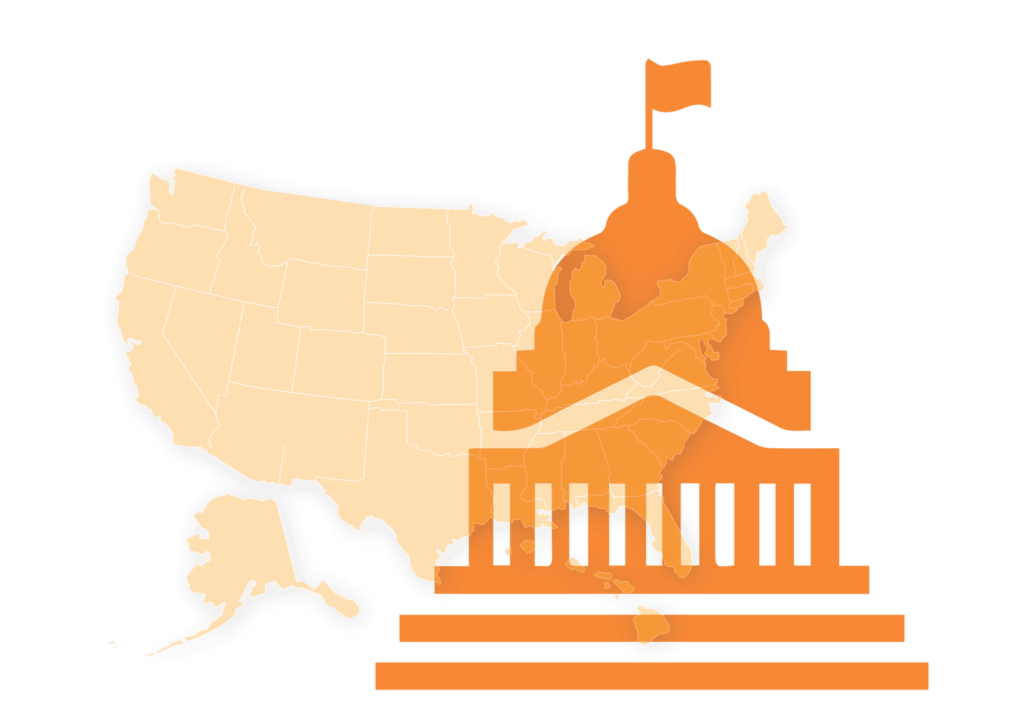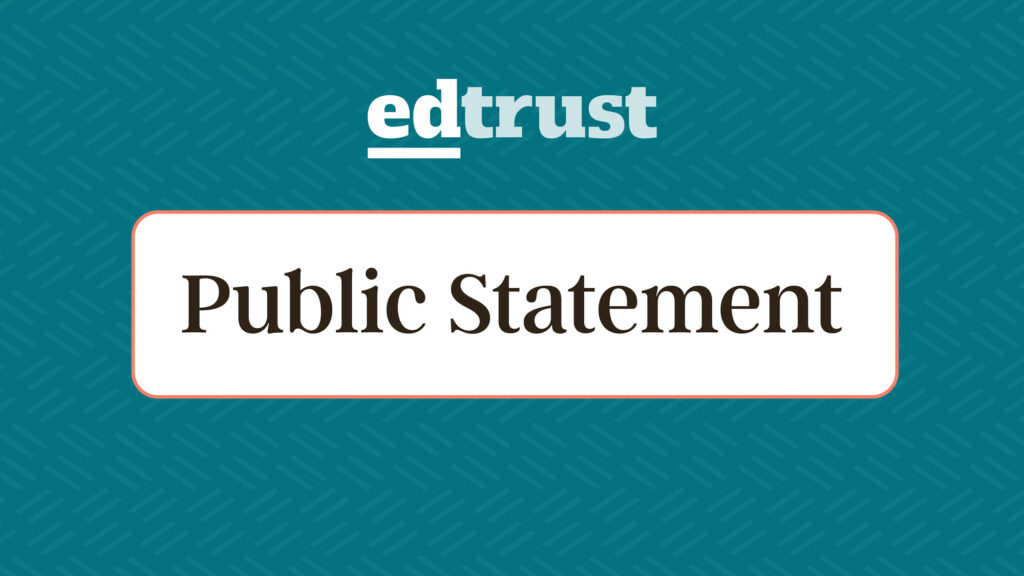Dear President Biden,
As a leading national nonprofit dedicated to closing opportunity gaps that disproportionately affect students of color and students from low-income families, we greatly appreciate your leadership to convene the White House Conference on Hunger, Nutrition and Health in September 2022. We view this Conference as an exciting and transformational opportunity to address food insecurity for our nation’s students, and we share your goal to end our nation’s hunger crisis by 2030. As your administration works to develop policy recommendations that the Conference will champion, we appreciate the opportunity to share our suggestions for how the White House Conference on Hunger, Nutrition and Health can help to end hunger and food insecurity for our nation’s students, including students of color, students from low-income backgrounds, and students with disabilities.
Hunger and food insecurity impacts millions of students across the country every day, with disparities greatest among underserved students. Students of color, students from low-income backgrounds, and students with disabilities are far more likely than White students to live in food-insecure households, negatively impacting their physical, mental, and academic well-being. These disparities in access to healthy meals are not limited to children; nationally, college students experience food insecurity and hunger at higher rates than the general population, with disparities most pronounced among students of color and students from low-income backgrounds. Regrettably, disparities in food insecurity and hunger for underserved students across the academic lifespan have only been exacerbated by the ongoing COVID-19 pandemic.
Given the significant challenges facing our students and the compounding effects the COVID-19 pandemic has had on their academic success and well-being, it is all the more imperative that the 2022 White House Conference on Hunger, Nutrition and Health comprehensively address student hunger. The White House Conference can not only help to bridge barriers and bring together diverse stakeholders who play a critical role in addressing student hunger, but it can also lead to exciting opportunities for collaboration, including better data sharing, improved implementation of programs, increased and improved integration of nutrition into schools, and much more.
In order for the White House Conference to end student hunger, it must meaningfully address long standing silos between education, agriculture, healthcare, and hunger. We encourage your administration to prioritize the following policy recommendations:
Expand access to Summer EBT: Meals provided at school, while essential to student success, cannot alone solve child hunger issues and bridge existing inequities in access to food. Summer is the hungriest time of year for students who depend on school meals, with only 13.8% of children receiving nutrition assistance during that time. That is why it is critical to permanently extend and expand the Summer Electronic Benefits Transfer (Summer EBT) program. Summer EBT is an evidence-based program that helps to reduce summer hunger by providing additional resources to purchase food for families with children who are certified to receive free or reduced-price school meals. Summer EBT ensures that more children have access to healthy food during the summer months, and more families will take advantage of the program if there are coordinated efforts to provide families with information about it. Expanding Summer EBT has been shown to reduce food insecurity by almost 30% and increase access to healthy food including fruits and vegetables.
Expand College Student Access to SNAP: College students face unique barriers in accessing meals; many are balancing schoolwork with parenting, while others are working full- or part-time. In particular, college students, as well as those pursuing professional certifications or licensing, face unique barriers in meeting eligibility for SNAP. During the pandemic, barriers that prevented college students from accessing SNAP were lowered; those reforms should be made permanent. Virginia’s General Assembly recognized its collective responsibility to create policy that simultaneously ensures no student goes hungry and that students can focus on learning by passing legislation to create employment and training exemptions for students so that more can receive SNAP benefits. The Conference presents an opportunity for educators and institutions to come together and share best practices for eliminating college student hunger, including lowering barriers to SNAP access.
Invest in Emergency Aid: The pandemic has had a severe impact on underserved students in college, particularly students of color and students from low-income backgrounds. Emergency aid to students in higher education, such as pre-pandemic aid programs and COVID Higher Education Emergency Relief funding, has been a critical lifeline to help keep students enrolled – many of whom were forced to suspend their education due to economic, health, or personal concerns. Establishing a permanent federal or federal-state partnership, as some have recommended, to provide emergency aid grants to institutions of higher education to address students’ basic needs insecurity would be tremendously impactful. This could include the use of funds for research, planning, and implementation of strategies to address student needs, and to ensure that all college students, especially students of color and students from low-income backgrounds, have equitable access to healthy food.
Establish Innovation Fund to Expand Federal Investments in Promising Practices: Renewing and bolstering federal investments to scale promising practices could be a powerful tool to address student hunger and food insecurity, particularly for underserved students. Establishing an innovation fund would allow increased investments in promising practices that improve student nutrition, such as scratch cooking, incorporating nutrition into learning, school gardens, funding to implement Local School Wellness Plans, and other promising practices. For example, research points to the tremendous benefits of school gardens, including encouraging healthy eating habits, increasing knowledge about healthy eating, and opening up students’ minds to hands-on science and learning. Similarly, local school wellness plans can be an important tool for parents and schools in promoting student physical and mental health.
Provide Universal Free School Meals: National, state, and local organizations across the country, including The Education Trust, support universal free school meals. In addition to the critical benefits to student well-being that universal free school meals provide, including improved academic performance, reduced absenteeism, and improved nutrition, this policy also helps improve school climate by eliminating stigma for students from low-income backgrounds who would otherwise qualify for free and reduced priced meals. Furthermore, universal free school meals would help to reduce regulatory burdens and organizational costs for schools, and could help to improve the overall quality of food served.
We are grateful for your consideration of these recommendations, and for your leadership and commitment to end our nation’s hunger crisis by 2030. We look forward to working with you throughout this process, and please do not hesitate to reach out to Blair Wriston, Senior Government Affairs Associate at The Education Trust (Bwriston@edtrust.org), with any questions or concerns.
Sincerely,
The Education Trust






 October 31, 2025 by
October 31, 2025 by